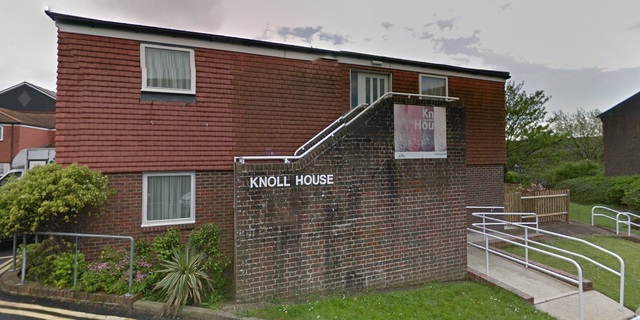Councillors spelt out their concerns about changes to rehabilitation services in Brighton and Hove as they quizzed health and care chiefs.
They were concerned that elderly people needing rehab would end up in nursing homes where staff would have a different focus.
And they were worried about how far family and friends would have to travel to see them as they recuperated after a stay in hospital.
The questions came as Brighton and Hove City Council prepares to give Knoll House over to young people with mental health needs.
The premises, in Ingram Crescent West, will no longer be used for adult social care although there will be space for people needing rehab at the Lindridge Care Home building in Hangleton.
Conservative councillor Dawn Barnett, who represents Hangleton and Knoll ward, was told that patients discharged from hospital to Lindridge would not have to pay care home fees.
At a meeting of the council’s Health Overview and Scrutiny Committee at Hove Town Hall she said: “I feel a bit happier about the rehab centre at Lindridge and I will be going in to have a look around and see what is going on.
“Rehabilitation is needed for the elderly or they end up sitting indoors waiting for God.”
Green councillor Tom Druitt backed her in asking for a report on rehab services to be presented the committee next year.
He told the meeting yesterday (Wednesday 16 October): “A word of caution … in a rehab centre that is purely for rehab, there is a culture of rehab.
“In a nursing home that does more general nursing as well as various other specialities, that culture might not be as strong.
“Therapists might go and do some rehab with someone for two hours but for the rest of the 22 hours of the day there won’t be that culture, necessarily, of continuous rehab, and this is what we might be losing from Knoll House.”
Rob Persey, the council’s executive director for health and adult social care, said that there were plenty of other beds for people with care and rehab needs.
And, he said, rehabilitation would still go on at Craven Vale, which was near the Royal Sussex County Hospital, in Brighton.
Across Sussex, he said, there would be a review next year into short-stay “step up” and “step down” beds – used for people who did not need hospital care.
There are almost 970 beds providing various levels of support for people after leaving hospital across East Sussex, West Sussex and Brighton and Hove.
For people in Brighton and Hove, 174 beds had been allocated for people who needed nursing care outside hospital. Not all of them were in Brighton and Hove – for example, some were in Newhaven – but Mr Persey said that many were in the city.
Green councillor Steph Powell asked if there was pressure to encourage patients to have nursing care in nursing homes rather than going back into their own homes.

Mr Persey said: “The hospital is under significant pressure and they do need to move people out of beds as quickly as possible as they have people they need to get in.
“We need to make sure people are accommodated in an appropriate setting.
“We will always make sure people go to the appropriate setting. We will not send people into nursing care if they don’t need it.
“We are driven to ensure people maximise the opportunities to maintain their independence and quality of life.”
Work was under way to find out the best way to make use of Knoll House to support people with mental health needs, he said, with a report due next year.
The report on Knoll House is due to come to the Health Overview and Scrutiny Committee as well as the council’s Health and Wellbeing Board.









